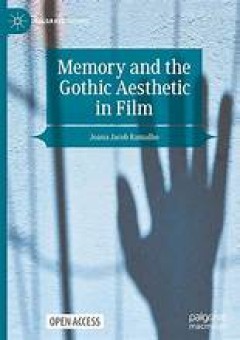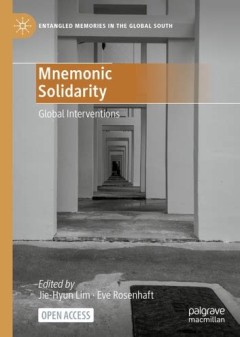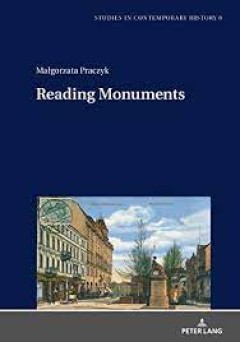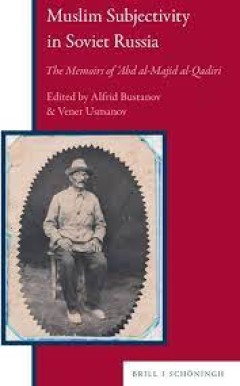Filter by

Tourism as Memory-Making = Russian Tourism in the Shadow of Empire
Until recently the Russian Federation used to be one of the largest markets for outbound travel. Among Russians’ favourite destinations were cities that used to be part of the Russian Empire and the Soviet Union, and are now located in the independent nation-states bordering Russia. This open access book provides an empirically rich and conceptually sophisticated account of the mnemonic inter…
- Edition
- -
- ISBN/ISSN
- 9783031837388
- Collation
- XV, 221 hlm,: ill, lamp; 21 cm
- Series Title
- -
- Call Number
- -

Memory and the Gothic Aesthetic in Film
This open access book defines the cinematic Gothic as an aesthetics of memory and exile. Guided by three intersecting concepts – memory, travelling, and touch – it suggests that the cross-border movements of exiles, émigrés, and professional travellers had a crucial impact on the emergence, development, and dissemination of the Gothic. This approach expands the canon to overlooked films, …
- Edition
- 1
- ISBN/ISSN
- 978-3-031-73628-5
- Collation
- oer.unej.ac.id
- Series Title
- Palgrave Gothic
- Call Number
- -

Mnemonic Solidarity : Global Interventions
This open access book provides a concise introduction to a critical development in memory studies. A global memory formation has emerged since the 1990s, in which memories of traumatic histories in different parts of the world, often articulated in the terms established by Holocaust memory, have become entangled, reconciled, contested, conflicted and negotiated across borders. As historical act…
- Edition
- 1
- ISBN/ISSN
- 9783030576691
- Collation
- XI, 135 hlm; ill., lamp.,
- Series Title
- -
- Call Number
- -

Memory and the Gothic Aesthetic in Film
This open access book defines the cinematic Gothic as an aesthetics of memory and exile. Guided by three intersecting concepts – memory, travelling, and touch – it suggests that the cross-border movements of exiles, émigrés, and professional travellers had a crucial impact on the emergence, development, and dissemination of the Gothic. This approach expands the canon to overlooked films, …
- Edition
- 1
- ISBN/ISSN
- 978-3-031-73628-5
- Collation
- -
- Series Title
- Palgrave Gothic
- Call Number
- XV, 281

Archives and Records
This open access book addresses the protection of privacy and personality rights in public records, records management, historical sources, and archives; and historical and current access to them in a broad international comparative perspective. Considering the question “can archiving pose a security risk to the protection of sensitive data and human rights?”, it analyses data security and …
- Edition
- 1
- ISBN/ISSN
- -
- Collation
- -
- Series Title
- -
- Call Number
- XXI, 313

Reading Monuments A Comparative Study of Monuments in Poznań and Strasbourg…
This book tells the story of monuments in two cities that share a parallel and turbulent history: Strasbourg and Poznan. With the Franco-Prussian War begins the well-known story of the destruction and erection of memorials. This book not only explains the mechanisms related to how memorials have functioned in the past, but also contributes to our understanding of current modes of their percepti…
- Edition
- -
- ISBN/ISSN
- 9783653071481
- Collation
- -
- Series Title
- -
- Call Number
- -

Muslim Subjectivity in Soviet Russia The Memoirs of ’Abd al-Majid al-Qadiri
The world as seen by a Qur’an specialist in late imperial and early Soviet Russia. Our book tells a dramatic story of ’Abd al-Majid al-Qadiri, a Muslim individual born in the Kazakh lands and brought up in the Sufi environment of the South Urals, who memorized the entire Qur’an at the Mosque of the Prophet. In Russia he travelled widely, performing the Qur'an recitations. The Stalinist te…
- Edition
- -
- ISBN/ISSN
- 9783657793778
- Collation
- -
- Series Title
- -
- Call Number
- -
 Computer Science, Information & General Works
Computer Science, Information & General Works  Philosophy & Psychology
Philosophy & Psychology  Religion
Religion  Social Sciences
Social Sciences  Language
Language  Pure Science
Pure Science  Applied Sciences
Applied Sciences  Art & Recreation
Art & Recreation  Literature
Literature  History & Geography
History & Geography